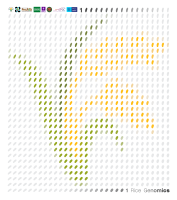The joint initiative stands to deliver a huge amount of data from the genome sequences of the 1001 Philippine TRVs. This will be made available to the public via the PH Rice GDB. From strengthening local expertise in crop genomics and bioinformatics, to providing more research opportunities—the program anticipates its potential in increasing and strengthening research output and capacity. The 1001 Rice Genome (1k1RG) Program is a promise to the future of rice in the Philippines as it ultimately aims to benefit farmers through accelerating the improvement and production of rice varieties.

Webinar: Advancing Plant and Animal Research through Chromosomal Scale Genome Assembly and Haplotype Resolved Analysis
The DNA Sequencing Core Facility (DSCF) partnered with Dovetail Genomics to host a webinar featuring resource speaker Dr. Chui Li on July 3, 2024, 1:00 PM – 2:00 PM. Learn more about this talk below: Importance of Chromosomal Scale Genome Assembly Achieving chromosomal-scale genome assembly is essential for unlocking the full potential of plant and animal […]
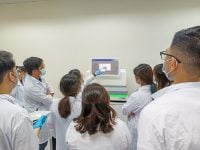
DSCF conducts whole genome sequencing training for the Bureau of Animal Industry
From March 20 to 22, 2023, the DNA Sequencing Core Facility (DSCF) hosted an instructive training session on Whole Genome Sequencing (WGS) tailored for the Bureau of Animal Industry (BAI). The participants were immersed in a comprehensive lecture on Molecular Biology Techniques for Genomics, gaining insights into the intricacies of Next Generation Sequencing (NGS) and […]

FREE AMR sample sequencing by PGC DNA Sequencing
The DNA Sequencing Core Facility (DSCF) in partnership with Golden Bat and QIAGEN is conducting a FREE sequencing of AMR samples from April 17-19, 2023.
Interested participants shall write a one-page rationale on why they need their sample/s sequenced and send it to [email protected] with the subject: AMR Sequencing [Entry]_Affiliation_Name
Deadline for entries is on March 31, 2023. For more information, contact Ma. Celeste S. Abad at [email protected] or [email protected] and/or call 981-8500 loc. 4707
Details on how to send accepted samples will follow.
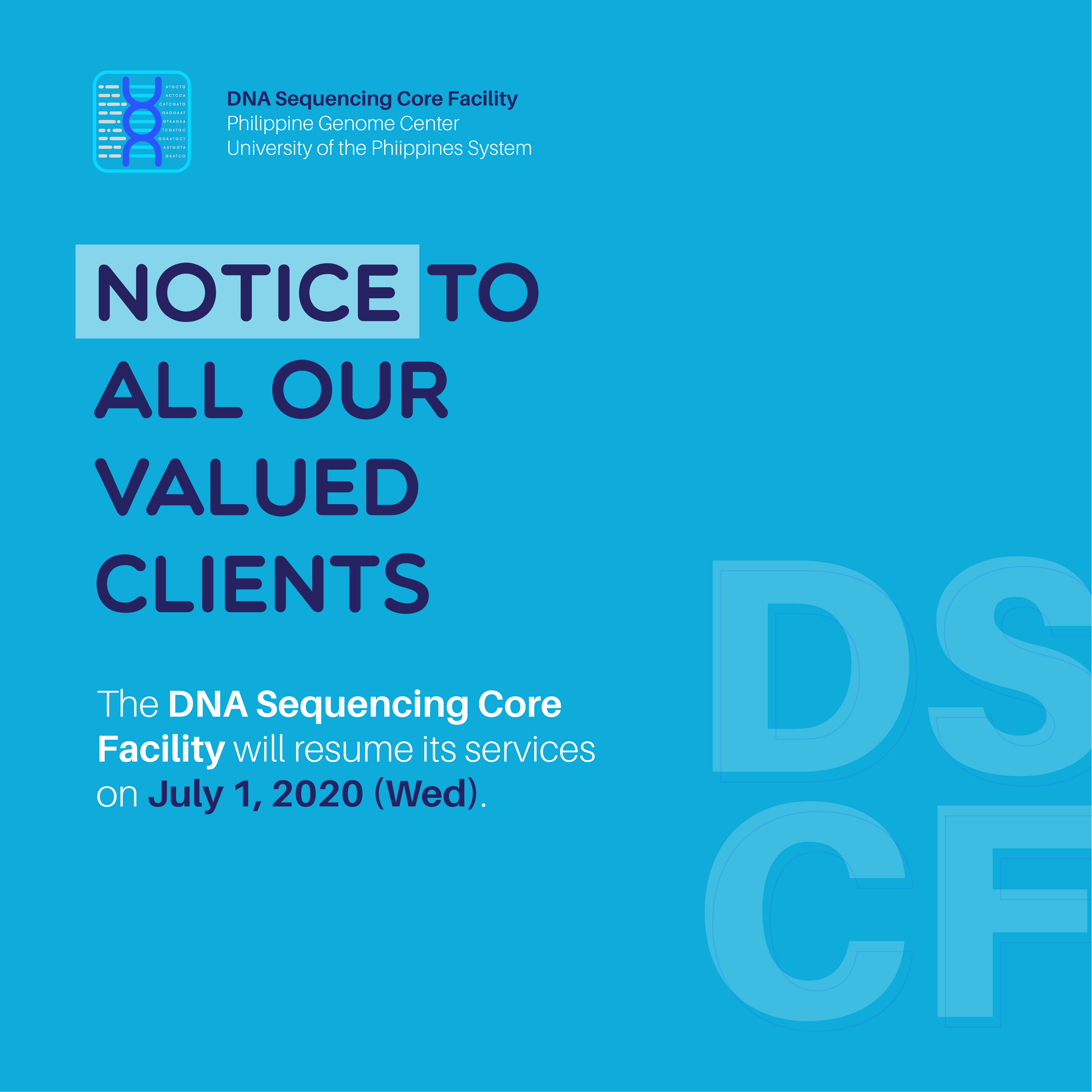
DNA Sequencing Core Facility resumes its services on July 1, 2020
Walk-ins will not be accommodated. Please email the lab and arrange drop-off appointment within the provided schedule and wait for confirmation prior bringing your samples to PGC.
#SalamatSaInyo
Thank you #SALAMATSAINYO Extending our appreciation and gratitude to the whole PGC skeletal force who have been working hard these past few weeks and are continuously doing so. In the same note, PGC sends its thanks to all the front liners out there: to our health workers, security guards, janitors, drivers, food chain employees and […]
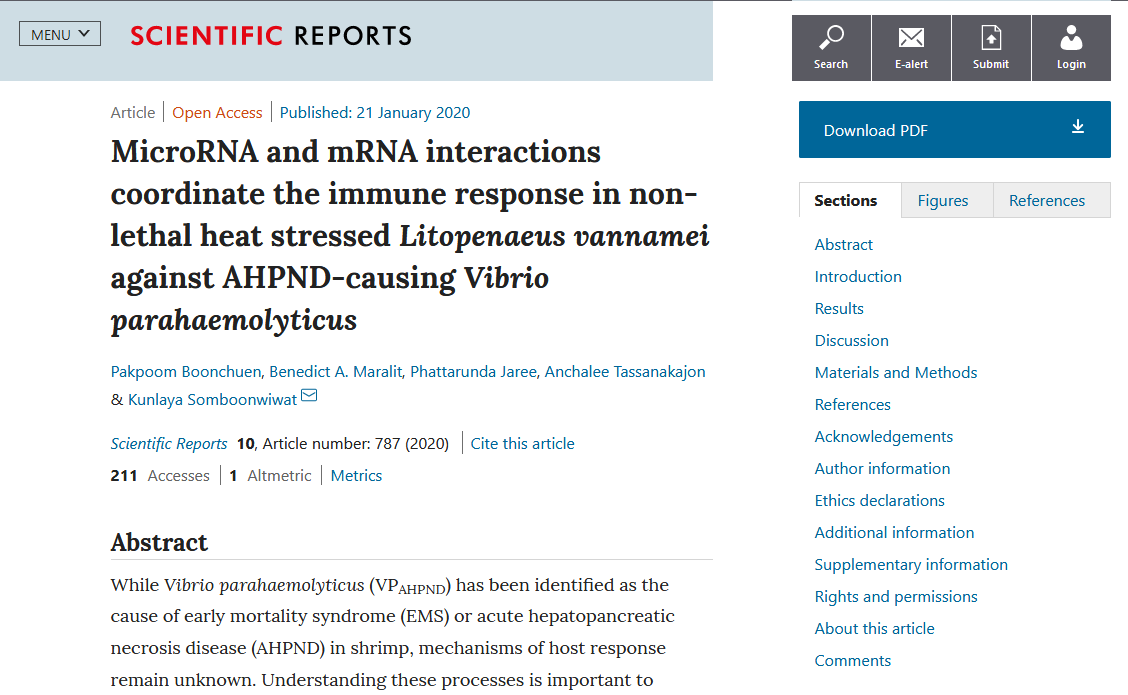
MicroRNA and mRNA interactions coordinate the immune response in non-lethal heat stressed Litopenaeus vannamei against AHPND-causing Vibrio parahaemolyticus
During its first outbreak, the devastating effect of early mortality syndrome (EMS) on the global shrimp industry was primarily caused by the lack of information regarding the disease and its causative agent.
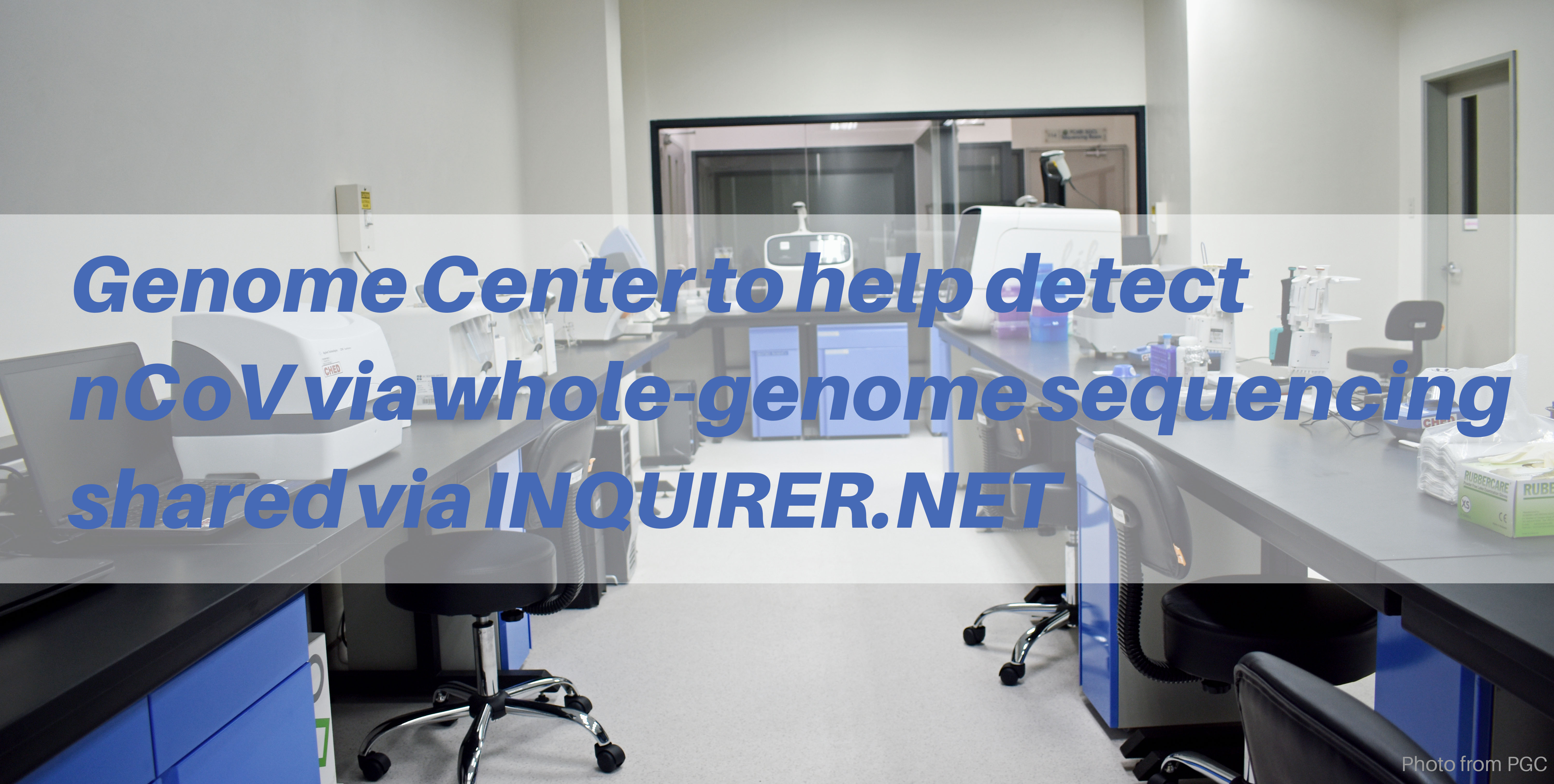
Genome Center to help detect nCoV via whole-genome sequencing
The Centers for Disease Control and Prevention (CDC) describes whole-genome sequencing as a “laboratory procedure that determines the order of bases in the genome of an organism in one process.”
According to CDC, scientists conduct data analysis, which is the fourth step of whole-genome sequencing, to compare “bacterial sequences and identify differences.”
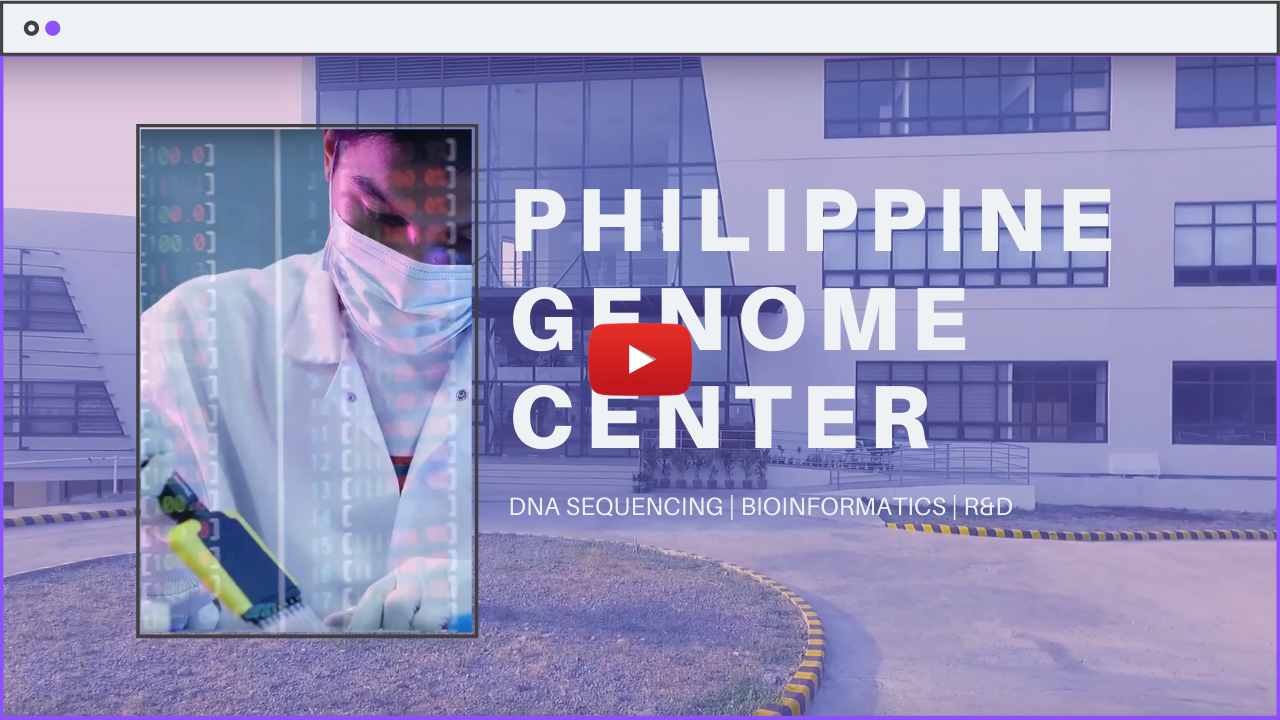
Philippine Genome Center
The Philippine Genome Center is a multidisciplinary research and service unit of the University of the Philippines for health, agriculture, biodiversity, and the environment.

Draft Genome Sequence of Multidrug-Resistant Vibrio parahaemolyticus Strain PH698, Infecting Penaeid Shrimp in the Philippines
The emergence of multidrug-resistant bacterial strains in diverse settings has been reported globally. In the Philippine shrimp aquaculture industry, antibiotics are used for the treatment of bacterial diseases during the production cycle. We report the draft genome of Vibrio parahaemolyticus PH698, a multidrug-resistant strain isolated from a Philippine shrimp farm.

